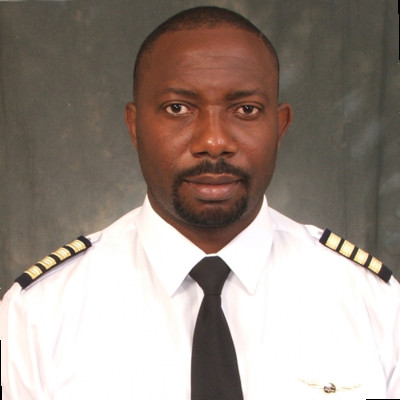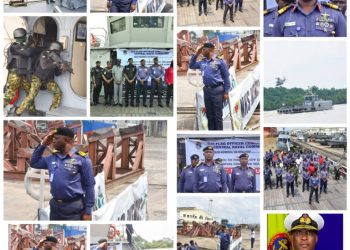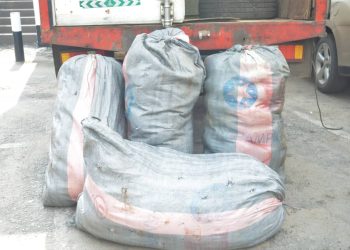OIL THEFT: PRIVATE SECURITY OPERATORS SAVE NIGERIA $43.2M DAILY – TANTITA
By Joy Enamuna
The activities of private security operators in combating crude oil theft in Nigeria is estimated to save Nigeria over $43.2million daily.
One of the private security contractors of the Nigerian National Petroleum Company (NNPC) Limited, Tantita, made this disclosure while speaking at the maiden edition of Maritime Reporters’ Association of Nigeria (MARAN) Annual Lecture, in Lagos, on Wednesday.
Speaking at the conference, the Executive Director, Tantita Security Services Nigeria Limited, Capt. Warredi Enisuoh, highlighted the crucial roles of private security operators even as he noted that dealers in crude oil theft have planted CCTV cameras in creeks to monitor their illicit activities.
His words: “We have places where grass may not grow for the next 100 years because of crude oil theft and associated activities. In the past, these operators utilized fire to process the crude oil but they realized that security operators have drones and night vision capabilities to see the fire trails. So, they moved to electricity. When they realized we discovered their illicit activities with electric, they translated to phosphoric acid. They pour the crude oil into several drums and pour phosphoric acid and wait for six hours for the acid to convert the crude to diesel that will be fetched from the top.”
Warredi, who is also a former Director of Shipping Development at the Nigerian Maritime Administration and Safety Agency (NIMASA), observed that having chased most of the perpetrators of crude oil theft away from the land areas, they moved to the creeks to attack oil well heads.
“They connect hoses from the wellheads into their storage. These transactions usually take place at night as they go to the wellheads with canoes to fetch crude oil without minding the pollution or possibility of fire outbreak. If the pressure isn’t strong enough, they use a reservoir to fetch the oil. Some of these oil connections flow through cassava farms and farm settlements that you wouldn’t suspect to be involved in crude oil theft,” Warredi said.
Speaking on the activities of private security operators in Secure Anchorage Area (SAA), Warredi wondered why a nation would carve out a portion on water like a land and sell it to somebody.
“With SAA, a vessel is entering the place and you say no you cannot enter here because you did not pay. However, the United Nations Convention on Law of the Sea (UNCLOS) declared the right of passage on the waters for vessels? Nigeria is a signatory to that law, so I am sorry if I made mistakes at that time with my conviction about SAA. Nonetheless, I still stand by it. I will never ever entertain the situation in my country where people will pay to access the waters,” Warredi opined.
In his presentation, a former Director General of NIMASA, Barr. Temisan Omatseye argued that since the end of the SAA contract operated by Ocean Marine Solutions Limited (OMSL), foreign vessels spend an average of $50,000 for security patrols in the country.
Omatseye observed that OMSL SAA activities created a degree of comfort for global shipowners and filled a lacuna in securing the anchorage area.
The former NIMASA boss suggested that the Deep Blue Project assets could be deployed to fill the missing role of SAA, stressing that service could be free or at a much-subsidized cost since the former operators were adjudged to be extorting shipowners.
He proposed a Response Zone Transit Corridor concept to create a patrolled transit corridor in the key high-risk areas in the Nigerian exclusive exclusive zone (EEZ).
“A 100 nautical mile transit corridor could be created to support vessels moving in and out of Bonny/Onne/Port Harcourt. The corridor will be permanently patrolled by 10 security vessels providing a guaranteed response to an area 50 nautical miles wide and 110 nautical miles long of a maximum 60 minutes dependent on location of incident. A drifting area at the outer limit of the transit corridor would replace requirements inshore for secured anchorage. The same concept could also cover between Lagos and Escravos areas, giving security guarantee up to 50 nautical mile offshore,” he said.




















